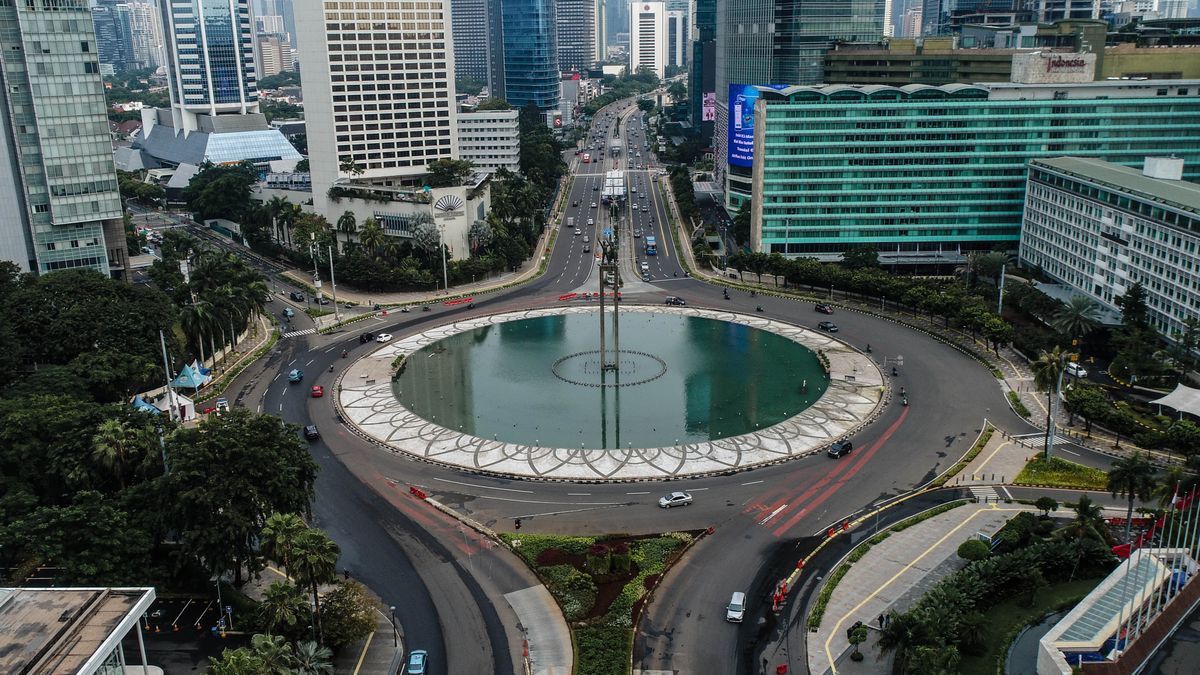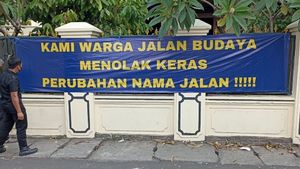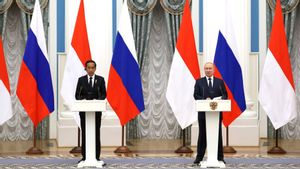JAKARTA - The Meteorology, Climatology and Geophysics Agency (BMKG) stated that the average air quality in Jakarta is in moderate condition with PM2.5 concentrations at 49.06 micrograms per cubic meter throughout June 2022.
BMKG forecaster Wahyu Argo said the highest spike in the increase in PM2.5 concentration was at the level of 148 micrograms per cubic meter on June 15, 2022.
"Changes in air quality are very dynamic. Concentrations of particulates tend to increase in the early hours of the morning and decrease during the afternoon and evening," Wahyu said as quoted by Antara, Friday, July 1.
PM2.5 refers to certain microscopic materials with a diameter of 2.5 micrometers or less. These particles have many detrimental effects on human health and the environment, making them one of the main pollutants used in calculating the air quality of a city or country as a whole.
The concentration of particulates has four levels with details of good air quality between 0 to 15 micrograms per cubic meter, moderate air quality between 16 to 65 micrograms per cubic meter, and unhealthy air quality between 66 to 150 micrograms per cubic meter.
Furthermore, air quality is very unhealthy, the value of particulate concentrations is between 151 to 250 micrograms per cubic meter, and dangerous air quality is above 250 micrograms per cubic meter.
Thus, the limit value of air pollution concentration allowed in ambient air is 65 micrograms per cubic meter.
VOIR éGALEMENT:
Wahyu explained that the high concentration of particulates compared to the previous months can also be seen when the air condition in Jakarta looks quite thick or dark.
Several factors that affect the concentration of particulates continue to contribute to the decline in air quality in the Jakarta area, including emissions from local sources in the form of transportation and settlements, as well as emissions from regional sources originating from industrial areas close to Jakarta.
The second factor is the surface layer wind pattern which shows the movement of air masses from the east and northeast to Jakarta. This condition has an impact on the accumulation of PM2.5 concentrations in the capital city.
The third factor is the high relative humidity, which causes an increase in the absorption of particulates in the surface air.
Furthermore, the fourth factor is because there is an inversion layer which is a layer in the air that is characterized by an increase in air temperature along with an increase in the layer height.
The impact of the presence of an inversion layer causes particulates on the surface to be trapped, unable to move to other air layers, and can result in the accumulation of particulate concentrations.
"When air quality declines, we urge you to wear personal protection such as masks that can reduce the level of exposure to outdoor air pollutants," Wahyu said.
The English, Chinese, Japanese, Arabic, and French versions are automatically generated by the AI. So there may still be inaccuracies in translating, please always see Indonesian as our main language. (system supported by DigitalSiber.id)











